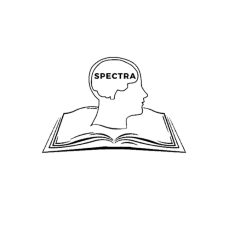Spectra Undergraduate Research Journal
Category
Arts, Humanities, and Social Sciences > Education > Science Education
Received
June 14, 2022
Accepted
August 19, 2022
Published
August 31, 2022
Copyright
Articles in Spectra are freely available under a Creative Commons Attribution License (CC BY 4.0) which allows others to re-use the work without permission as long as the work is properly cited.
Data Availability Statement
The data for this project is available upon request to the PI of this project Tina Vo (tina.vo@unlv.edu).
Conflicts of Interest
The author declares that they have no competing interests.
Ethical Considerations
This research is covered by a Category 1 exempt IRB [UNLV-2021-247 Investigating the impact of OpenSciEd], held by Dr. Tina Vo. All authors are CITI certified and were the only researchers to work with anonymized data.
Funding
This research was made possible by the UNLV Office of Undergraduate Research’s (OUR) 2021 Undergraduate Research Stimulus Program (URSP) Track 1: Undergraduate Research Mentor-Mentee Program.
Abstract
The Nature of Science (NOS) is a component of science literacy that supports critical thinking around science concepts, speaking to how and why science is conducted and connected to creating data and evidence. NOS is designed to be more than the standardized lessons of science; it helps children critically analyze and solve real-world and societal issues using scientific knowledge. The interpretation of science varies between the ideology and beliefs of each individual. Given the importance of this idea, it is necessary that teachers be able to provide NOS opportunities to students; however, first, they must have a firm grasp of the concept. To that end, we have created a qualitative study using the Views of Nature of Science (VNOS-D+) questionnaire to understand how a group of middle school science teachers conceptualize the NOS. The VNOS-D+ was administered to a cohort of teachers and administrators (n=23) within a Large Urban School District. The data was analyzed using the VNOS key and then open-coded by three reviewers. The results found that participants had an emergent and developing understanding of the NOS and should be supported to develop a robust NOS perspective. Given this finding, future research, professional development, and educational curriculums should support teachers to continually engage with NOS explicitly and implicitly to grow their understanding of the topic.
Keywords
Nature of Science (NOS), VNOS, middle school teachers, science education
Submission Type
Primary research article
Recommended Citation
Charupoom, M., Hernandez, Y., Carter, E., Thomas, N. J., & Vo, T. (2022). Understanding inservice middle school teachers’ Views of Nature of Science (VNOS). Spectra Undergraduate Research Journal, 2(2), 89-101. https://doi.org/10.9741/2766-7227.1022
